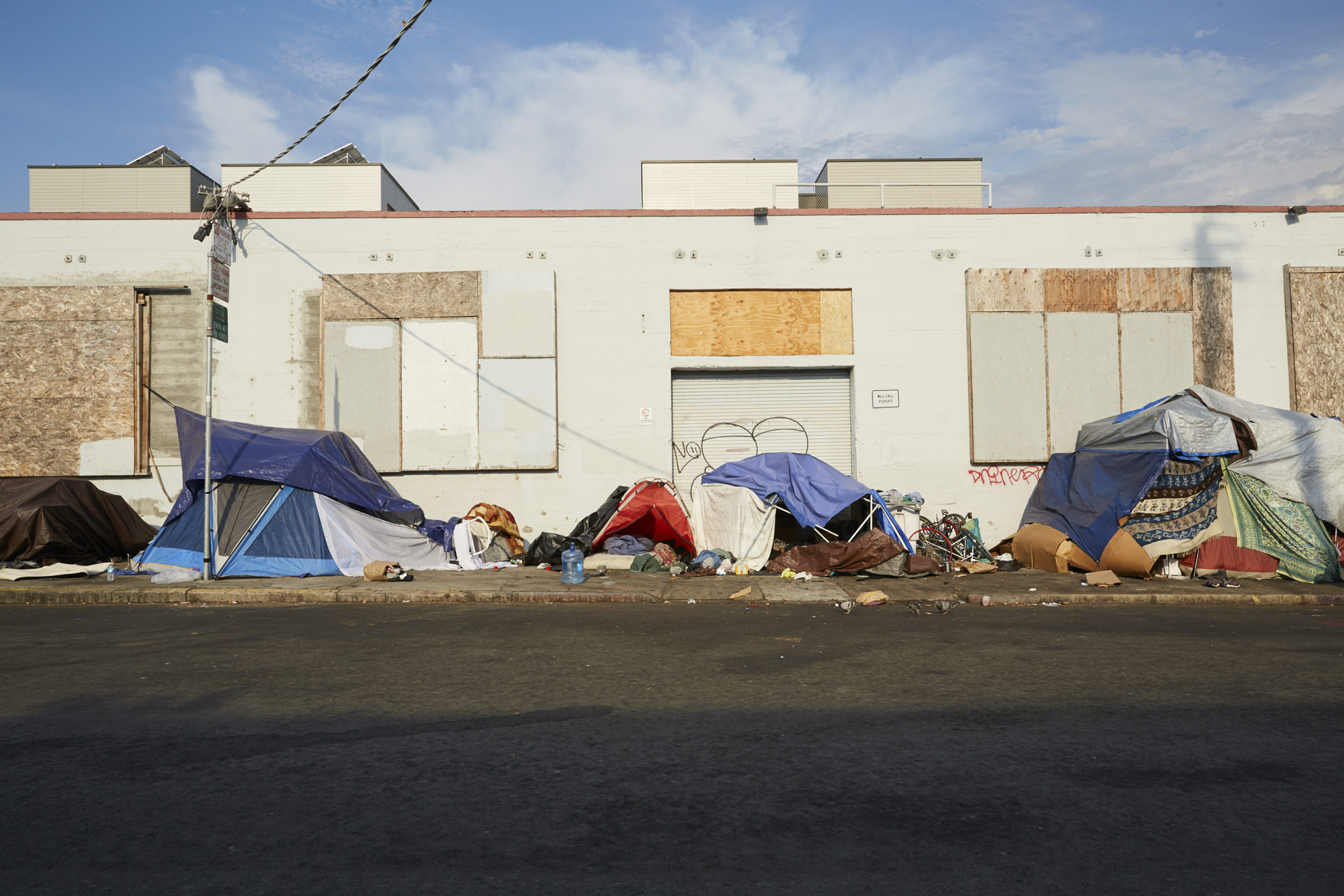Wealth & Poverty Review President of Orange County Rescue Mission Explains Homelessness
In the United States, 580,000 people are homeless on any given night. Twenty-eight percent of that total — over 160,000 — reside in California. Is it the warm climate? The politics? The housing costs? What is it that makes California a hotspot for homelessness compared to other states, and why is their problem only growing worse?
To answer these, and many more, questions, President and CEO of the Orange County Rescue Mission Jim Palmer appeared on Humanize, a podcast from Discovery Institute’s Center on Human Exceptionalism, hosted by Discovery Fellow Wesley J. Smith.
Smith calls homelessness “a crucial issue of human dignity,” and he’s right. There is nothing dignified about allowing half a million people to live in third-world-like conditions anywhere in our nation, much less in our largest cities. The problem might be too complex for a one-size-fits-all solution, but it’s not unsolvable.
The Orange County Rescue Mission is the largest non-profit faith-based organization in the Orange, Riverside, and San Diego Counties. Incredibly, it houses 500-600 people within their many facilities at any given time and serves over 19,800 people in the community.
“Homelessness is really just a big label that’s thrown on a situation,” explained Palmer. “I tell people, we don’t really have a homeless situation. We have an addiction issue, we have a broken household issue, we have abuse issues, things like that. We do pre-screening of the homeless we’re working with. Eighty-seven percent of them self-identify that they have an addiction issue and/or a mental health issue. That’s eighty-seven percent.”
Here is an excerpt of the conversation, focusing specifically on how addiction, mental illness, and disaffiliation contribute to homelessness, and how Housing First policies are failing to address the real problems:
Smith: You said something earlier that homelessness – these are not the words you used, but I think it’s what you meant – that it’s a pretty generic term. We’re actually talking about a lot of different populations when we talk about the quote homeless, aren’t we?
Palmer: We really are. And when you look at the brokenness that leads someone to end up in their car, on the streets, without housing, most cases it centers around addiction, it centers around health, of mental health, physical health. Then, of course, you’ve got employment, housing opportunities, things like that that are a little further downstream. But upstream are the significant broken areas in people, and unfortunately, our elected officials and others look at just the housing piece. Let’s just put them in an apartment. And this has been experimented throughout the country and it’s fascinating because in Utah, in Salt Lake City, they did this. They rounded up the homeless, they found apartments, they put them in there, and then all of a sudden they noticed the number of people dying from overdoses had increased dramatically. And that’s because when the homeless were on the street and they overdosed, someone actually saw –
Smith: Oh, and called the paramedics.
Palmer: – when they were in an apartment, nobody saw them. So I keep going back to the fact that unfortunately, we look at this as a housing issue. Which, housing is a part of it, but the real piece of it is the addiction side of it. So if we’re not treating the addiction side of this, we’re really going nowhere. We’re just spinning our wheels for the most part.
Smith: You know, there’s an issue of love here – both the ability to love people who may seem pretty unloveable, and the ability of those people to love themselves. I know that if I ended up for some reason really, you know, had a horrible crisis and I ended up unable to afford my rent or my mortgage, there are people in my life who I know would take me in and help me get back on my feet until I was able to do that. But it seems to me that – and of course, I would do that for people I know, too, people who are in my family or people who are, you know, close friends and so forth. But a lot of people don’t have that, do they? A lot of people really are on their own in this country.
Palmer: Well, they can be because they’re transplanted, but many of the cases we see are because they burnt all those bridges. I mean, addiction is a horrible thing. You look at the opiate addiction that we have in our country. What does that go back? Like seven or eight years? They now say that more people have died from opiate overdose than the number of Americans that died in WWI and WWII.
Smith: Good grief.
Palmer: It is a huge issue. When we see people come to us, they have burnt most of those bridges, in most cases all of the bridges, of both family and friends. So they don’t have a safety net that you or I might because we’re not dealing with an addiction. So I think that’s one thing we need to recognize is it sort of goes back to addiction.
Smith: And part of it is also mental illness, is it not?
Palmer: It is. What came first, the chicken or the egg? This is the one thing that all the professionals, you know we sit around and talk about in many cases people have mental health issues in which they use drugs illegally to self-medicate themselves because they feel they can do a better job than maybe whatever doctor they had at one time.
You can listen to the full interview by clicking here.
Some helpful links:
Rescue Mission | Providing hope to the homeless in our Communities.
https://www.rescuemission.org
Citygate Network
https://www.citygatenetwork.org/agrm/default.asp

